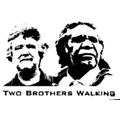Yothu Yindi and the Yolngu culture: dreaming of a brighter day
The lead singer of the band Yothu Yindi died yesterday of kidney disease, aged 56.
Only a few decades after radio, popular music and electric guitars spread through Arnhem Land in the 1960s, Yothu Yindi rose to take a prominent and celebrated place in Australian culture.
Forming in 1986, the band was soon making a number of international tours and their hit songs Treaty from 1991, blazed its way up the Australian pop charts.
Treaty not only became the first song in an Indigenous Australian language, Gumatj, to gain widespread attention but it also became the unofficial anthem for the reconciliation movement: “Now two rivers run their course, separated for so long. I’m dreaming of a brighter day when the waters will be one.”
Composed in collaboration with Paul Kelly and Midnight Oil, this song protested the lack of action taken by then Prime Minster Bob Hawke’s on his 1988 promise of a treaty with Indigenous Australia.
Two halves
Yet the significance of Yothu Yindi goes much deeper than the band’s phenomenal success as a popular music group. The very name of the band asserts a fundamental tenet of indigenous ancestral law. This principle of yothu-yindi or “child-mother” underpins the entire Yolngu world, the cultural and linguistic group to which the band and its musicians belong.
The Yolngu world is divided into two halves, or two moieties, known as Dhuwa and Yirritja. Everything in nature, society, language and ceremony belongs to either one of these two halves. To anyone born in the Yolngu world, your mother always belongs to the side opposite yourself: if you are Dhuwa, your mother will be Yirritja and vice versa.
This system governs important rights such as land ownership, shapes regional parliamentary gatherings and determines the particular songs and dances that are your duty to sing and maintain.
Yothu-yindi is an expression of unity in diversity, a relationship of difference (child-mother) out of which stems good society. Yothu-yindi is about the reciprocal responsibilities of caring for country and family.
Yothu Yindi’s recently deceased lead singer, who was also the first Aboriginal school principal in Australia, carried the notion of yothu-yindi into his tireless advocacy for a “two-ways” bi-cultural approach.
His 1993 Boyer lectures advocated relative autonomy, where Yolngu people, law and culture exist side by side with the rest of Australia. He was also named Australian of the Year in 1992.
Just as salt water meets fresh to create brackish water, yothu-yindi concerns productivity amid difference. This ancestral law extends into the very music that Yothu Yindi plays. As the singer told Rolling Stone magazine: “I’m using white man’s skills, Yolngu skills and putting them together for a new beginning.”
Narratives from public Yolngu ceremonies and tradition are carried by the new musical forms, contexts and instruments of Yothu Yindi. Like the colourful artwork that comes out of Arnhem Land, popular music continues to be used as a means of telling ancestral stories in the present.
Sunset dreaming
Another ARIA winning Yothu Yindi song, Djäpana: Sunset Dreaming, imagines the red sinking sun that, as the vocalist sings, “takes my mind back to my homeland, far away.” It is a song of worry and homesickness sung at funeral ceremonies. The design being painted onto the chest of a boy in the film clip shows clouds on the horizon forming out to sea. The sunset glows, reflected on the clouds and water.
Like other Yothu Yindi songs, Djäpana: Sunset Dreaming uses lyrics taken directly from the age-old ceremonial repertoires belonging to the Gumatj and Rirratjingu clans. The characteristic sound of the didjeridu (yidaki) and clapsticks (bilma) that can be heard in rock music from Arnhem Land also stem from tradition. These instruments are at the heart of ceremonial dance (bunggul) and complement the band’s rock style, creating rhythmic drive and groove.
Yothu Yindi’s performances across the country and globe are, first and foremost, an assertion of the relevance of Yolngu law today. They are a demonstration of the Yolngu ability to bring their ancestral narratives into contemporary expressions, asserting their legitimacy as they share them in an ever-changing world.
Truly Australian music
Touring through the 1990s and into the 2000s, Yothu Yindi have continued to achieve success as a widely recognised group representative of truly Australian music. Embracing popular sounds and media, they have given Australians a fresh and positive perspective on Indigenous culture. Their music exudes hope for a brighter future.
The band’s high profile gigs, such as the closing ceremony of the 2000 Sydney Olympic Games, are matched by their workshops with Indigenous bands across Arnhem Land. The Yothu Yindi Foundation’s annual Garma Festival at the homeland Gulkula, continues what Yothu Yindi started, bringing people together to discuss ideas of reconciliation and to share traditional culture.
With great energy and colour, Yothu Yindi sing in celebration of the great traditions of their ancestral homelands, allowing their voices to merge with mainstream Australia in hope for our shared future.
The lead singer of Yothu Yindi has not been named or depicted in this article out of respect for Yolngu cultural protocols.
Samuel Curkpatrick does not work for, consult to, own shares in or receive funding from any company or organisation that would benefit from this article, and has no relevant affiliations.
This article was originally published at The Conversation.
Read the original article.
